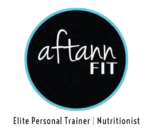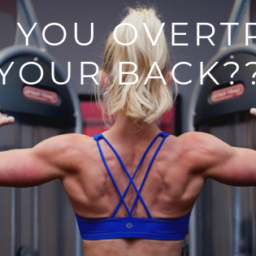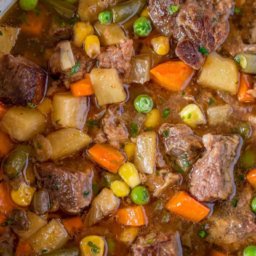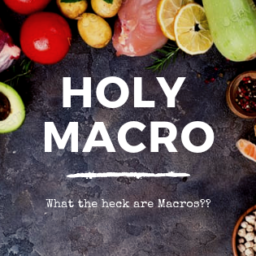Question of the Day: WHAT should I eat, and WHEN should I eat before and after I workout?
These are important questions because there are many misconceptions and misinformation on pre and post-workout nutrition.
What you eat (or drink) pre and post-workout can have a dramatic effect on your performance during a workout—and how your body recovers afterward. Your diet, after all, is the fuel that powers your fitness goals, be it weight loss, muscle gain, improved endurance, or athletic performance.
Here is my advice and the latest research on how to best fuel for your workouts and recover from them.
When Should I Eat Before My Workout?
Before I dive in on what to eat before and after your workout, it’s important to note that the knowledge about exercise nutrition has deepened over the last decade. As more research has become available, we have learned that total daily calories have become more important than the timing (when you eat before and after your workout).
In other words, the question of whether your total daily calories are being met should be prioritized over when you should eat before and after your workout. When you eat doesn’t seem to make a lot of difference for MOST people.
However, that’s not to say that nutrient timing is dead. Nutrient timing is crucial if you’re a weight class athlete, serious endurance athlete, bodybuilder, or if you train twice a day.
But, if your goal is to get healthier and more fit, nutrient timing may not be as essential, adding layers of unnecessary complexity.
Pre-workout Nutrition
Q: What should I eat before I workout?
A: The point of eating before a workout is to provide energy to perform at a higher level—lift heavier weights, work faster and harder. But what you eat before a workout highly depends on what type of workout you’re doing. If you’re walking or doing yoga, you might not need to eat as much or at all. However, if you’re lifting weights, doing an endurance run, or CrossFit workout, I advise my clients to eat before exercising; not eating before can make you dizzy, lightheaded, and nauseous. Plus, if you’re trying to build muscle, it’s counterproductive not to eat before you workout.
The best pre-workout meal is a mix of protein, carbs, and healthy fats 1-3 hours before your workout. Protein helps retain and build muscle. Carbohydrates will give you energy for your workout, and the healthy fats will slow down digestion, so you don’t get hungry in the middle of your workout.
Remember, our bodies don’t use protein as an energy source, so taking in a bunch of protein before a workout will not help fuel your workout and will not help you build extra muscle.
A few of my favorites are:
- Oatmeal + eggs + nuts (here’s how I make my oats)
- Yogurt + berries + nuts
- Chicken, sweet potato + avocado
- Protein shake + fruit + peanut butter
- Sandwich (Turkey + Bread + Cheese or Avocado)
- Protein Bar (this is my new favorite protein bar)
Post-workout Nutrition
Q: When should I eat after my workout?
A: It has always been advised to consume protein within 20-30 minutes after exercise because if you don’t, your muscles will atrophy (get smaller), and you won’t have energy the rest of the day. This 20-30 minute window was the post-workout “anabolic window of opportunity” where our bodies could best use the nutrients to recover. New research shows that this window is a lot bigger than previously believed.
After you exercise, your muscles and body are hungry for fuel. To help build and repair muscle, support immune function, sustain energy, and enhance your recovery, I recommend eating within two hours after your workout.
But this is context-dependent; what you ate before your workout influences things.
If your pre-workout meal was small, or you ate it several hours before training or didn’t eat at all, then it’s more critical for you to eat that post-workout meal as soon as possible.
What Should I Eat Post-Workout?
When we put our muscles under tension from working out, we break them down and tear our muscle fibers. To build and repair the muscle, we need to get protein (the building block of muscle) INTO the muscle. Here’s the catch though, your body needs something to drive that protein into your cells, just like you need a hammer to drive a nail into a piece of wood. Think of protein like a nail and carbs like a hammer. Eating carbs post-workout drives the protein into your muscle.
When it comes to post-workout nutrition, it’s important to have BOTH protein and carbs post-workout if your goal is to build muscle, lose fat, sustain energy, or achieve that “toned” look. And don’t worry, keto lovers, the carbs you eat after training are more likely to be used as energy to build and repair than stored as fat.
A few of my favorites are:
- Protein shake – made with whey protein powder + fruit (I use Bad Athletics protein powder) use the code: ‘aftann’ for 10% off
- Chicken + rice
- Eggs + toast
- Ground Turkey and sweet potato
- Yogurt or cottage cheese and fruit or granola
Bottom Line
Everybody is different; there’s no perfect pre-and-post-workout nutrition regimen for everyone, so do what works for you.
What you eat is always context-specific. What a petite yoga girl and a 225 lb. bodybuilder eat before and after their workout will differ.
But, for most of us, the best pre and post-workout meals contain a combination of protein, carbs, and healthy fats. These whole foods provide a fantastic blend of fiber, vitamins, minerals, antioxidants, and phytonutrients that build muscle, sustain energy, decrease inflammation, and boost recovery.
So please keep it simple, don’t overthink it, and enjoy your workout and meals.
If you need help with your diet, check out my Customized Meal Plan or my online FIT12 program.
And for more fitness and nutrition information, follow @aftannfit on Instagram and Facebook.





